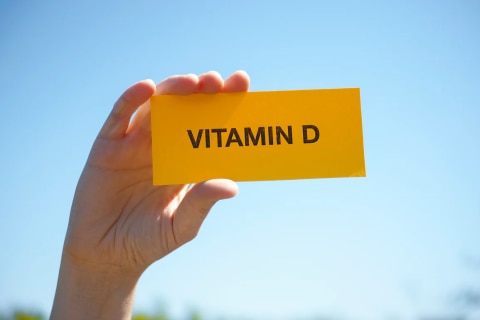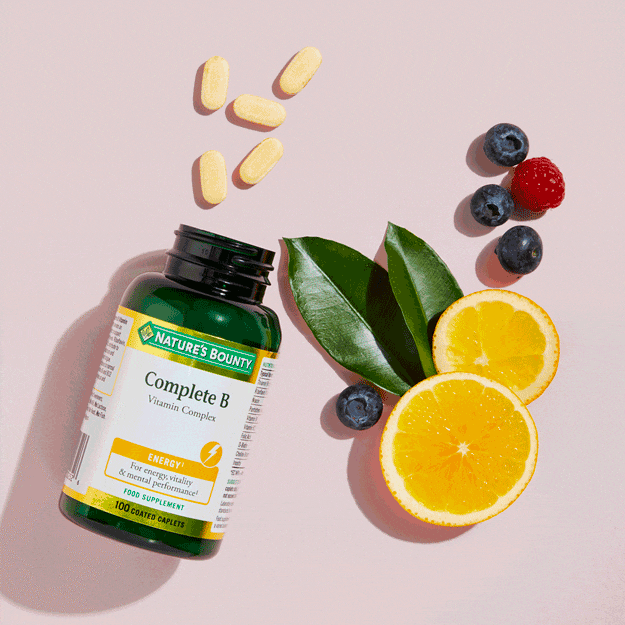
Top tips for winter wellness
With winter fast approaching it’s a good time to make sure your immune system is up to scratch. As temperatures drop, there are some simple steps you can take to help keep your immune defences functioning at their best.
Optimise sleep
We all know that sleep is fundamental to our health. That’s because, while we are busy catching some shut-eye, our immune system is hard at work generating specific immune cells. These cells are first responders, patrolling the body, ready to initiate an immediate immune response to any foreign invaders. But lack of sleep leads to a lower number of these cells, which can increase susceptibility to infection.1,2
Deep and restorative sleep is dependent on the production of a hormone in the brain called melatonin, which helps us to fall asleep faster and stay asleep longer.3 The use of blue light-emitting mobile phones, tablets, computers and TVs before bedtime suppresses levels of melatonin and prolongs the time it takes to fall asleep.4 If you are struggling to get enough sleep, try avoiding the use of these devices for at least an hour before going to bed. Aim for 7-8 hours each night.5
Focus on micronutrients
Research suggests that the best diet to support the immune system is one rich in micronutrients, which include vitamins and minerals. Veg, fruits, berries, nuts, seeds, grains and pulses along with some meats, eggs, dairy products and oily fish are good sources of micronutrients such as Vitamin C and zinc.6 However, if you are not getting enough of these foods in your daily diet, a supplement may be helpful.
Vitamin D – consider a supplement
Vitamin D can assist the immune system by helping to regulate T cells and B cells that are required for the adaptive immune response.7 Adaptive immunity builds memory so that if you encounter the same pathogen again, the body can react quicker and more effectively.
Vitamin D is a micronutrient that is not easy to get from the diet as it is only found in small quantities in foods such as oily fish, eggs and sun dried mushrooms. The main source of Vitamin D is from sun exposure in the spring and summer months. Even if the sun is out in autumn and winter, it’s not possible to make any Vitamin D. This is why the government recommends that everyone considers taking a supplement during this time of the year.8 Look for a supplement containing D3 (cholecalciferol), the more active and bioavailable form of the vitamin.9
Support gut health
Around 70% of immune cells are found within the gastrointestinal tract. Your gut is home to trillions of bacteria10 and your diet and lifestyle can have a profound effects on which types of bacteria dominate this ecosystem. A fibre-rich diet including fruit, vegetables and wholegrains along with fermented foods such as kefir and sauerkraut promotes a healthy and diverse population of bacteria, which in-turn supports a healthy immune system.11-14
Minimise stress
Chronic stress is associated with immune system suppression.15 We cannot always remove stressors from daily life, but we can adapt how we respond to them. Incorporating techniques into your daily routine such as mindfulness meditation may help to reduce stress, stress sensitivity, and improve certain parameters of immune function.16,17
Take regular exercise
With exercise, it’s all about balance when it comes to immune health. Regular exercise of moderate-to-vigorous intensity (less than 60 min) is associated with better immune health.18 However, excessive or prolonged exercise involving repeated, unusually heavy exertion may increase the risk of illness.19 Exercise is also a great stress reliever.20
There is no one thing that is going to keep your immune system healthy - a holistic approach is required. Consistently incorporating the above suggestions into your lifestyle provides a good start for keeping your defences strong this winter.
Our range of immunity supplements will support your body along side with these steps.
References:
- Oztürk et al. Sleep Res Online. 1999; 2(4):107-11.
- Cohen et al. Arch Intern Med. 2009; 169(1):62-67.
- Kayumov L et al. Psychosom Med. 2001 Jan-Feb;63(1):40-8.
- Chang et al. Proc Natl Acad Sci USA. 2015 Jan 27;112(4):1232-7
- Sleep Health. 2015 Mar; 1(1):40-43.
- BMJ Nutrition, Prevention & Health 2020
- Bikle DD. Trends Endocrinol Metab. 2010 June;21(6):375-384
- https://assets.publishing.service.gov.uk/government/uploads/system/upload/attachment_data/file/537616/SACN_Vitamin_D_and_Health_report.pdf
- Heaney RP et al. J Clin Endocrinol Metab. 2011 Mar; 96(3):E447-52.
- Salminen SJ et al. J Nutr. 2005 May;135(5):1294-8
- Belkaid & Hand. Cell. 2014; 157(1):121-141.
- Kitano & Oda. Mol Syst Biol. 2006;2:2006.0022.
- Lozupone et al. Nature. 2012 Sep 13; 489(7415): 220–230.
- Tomova et al. Front Nutr. 2019;6:47.
- Segerstrom SC, Miller GE. Psychol Bull. 2004;130(4):601-630
- Black & Slavich. Ann N Y Acad Sci. 2016; 1373(1):13-24
- Janssen M et al. PLoS One. 2018;13(1):e0191332.
- Simpson RJ et al. Exerc Immunol Rev. 2020;26:8-22
- Nieman & Wentz. J Sport Health Sci. 2019; 8(3):201-217.
- Hamer M et al. Journal of Sports Medicine 2009;43:1111-1114
Don't keep all the good info to yourself.
Share this with friends!
Explore more blogs:






